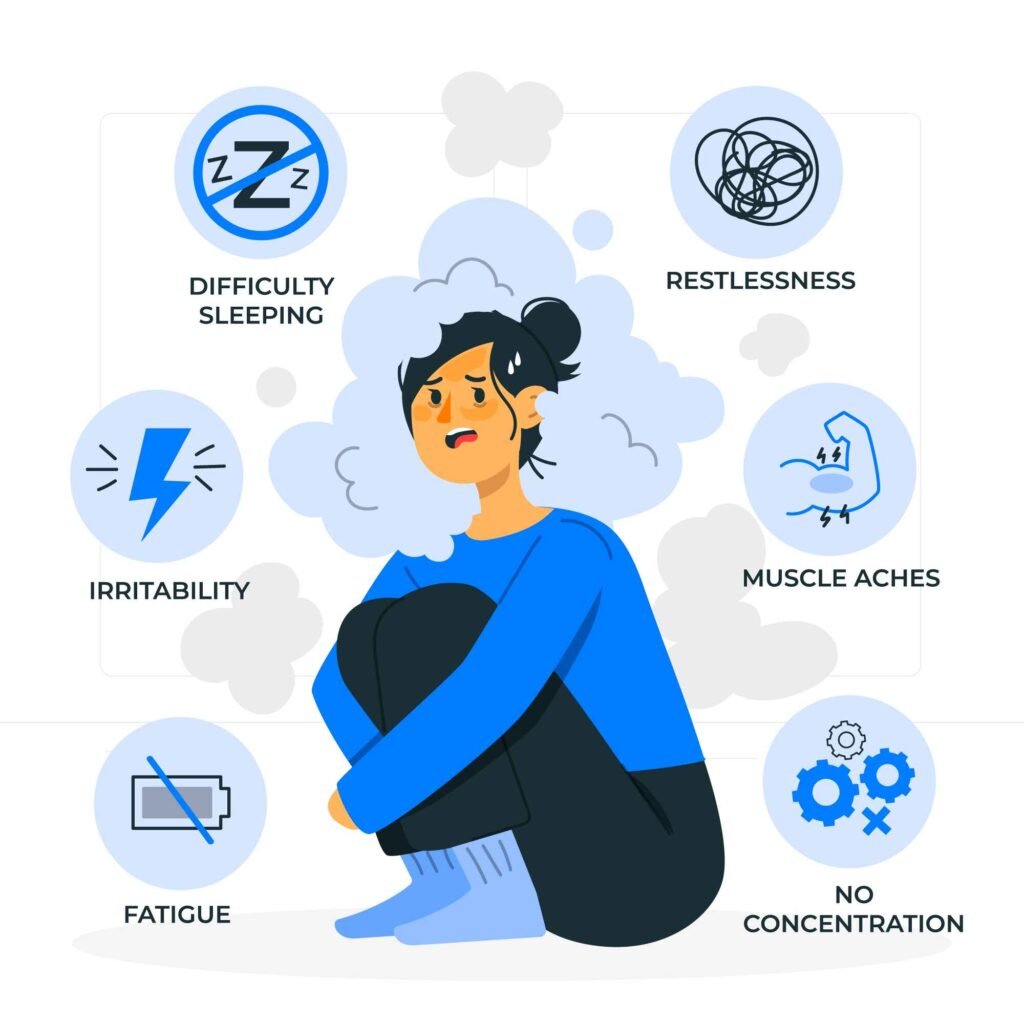
Creating the Perfect Sleep Environment
Are you struggling to get a good night’s sleep? It turns out that your sleep environment plays a bigger role than you might think. From the temperature of your room to the lighting, sound, and even the quality of your mattress, all these factors impact how well you sleep. Optimizing your sleep space can help you fall asleep faster, stay asleep longer, and wake up feeling refreshed. This article provides practical tips to create the ideal sleep environment, helping you build better sleep hygiene habits for a more restful night.
1. Why Your Sleep Environment Matters
Good sleep hygiene is more than just going to bed at the same time every night. It encompasses every aspect of your environment. When your bedroom is set up to promote relaxation, your body is more likely to wind down and transition into restful sleep. The right environment can help regulate your circadian rhythm—the natural internal clock that tells you when it’s time to sleep and wake up.
Studies show that a calm, clean, and well-organized bedroom helps reduce stress and promotes relaxation. Just as you wouldn’t work in a chaotic office, you shouldn’t sleep in a space that isn’t conducive to rest. But what exactly makes a bedroom ideal for sleep?
2. Control the Room Temperature
Temperature is one of the most critical aspects of creating the perfect sleep environment. Experts agree that a cool room, generally between 60 and 67°F (15 to 20°C), is ideal for promoting deep, restful sleep. This temperature helps regulate your body’s core temperature, which naturally drops when you sleep. A cooler environment supports this process, leading to longer, more restful sleep stages.
If your room is too hot or too cold, it can lead to discomfort, tossing and turning, and frequent awakenings during the night. Consider adjusting your thermostat or using a fan for better air circulation. In winter months, opt for breathable but warm bedding, such as cotton sheets and a heavier comforter, while lighter bedding can be ideal for summer.
3. Darkness is Key: Minimize Light Exposure
Light plays a critical role in regulating your sleep-wake cycle, especially the production of melatonin, a hormone that signals to your body that it’s time to sleep. Exposure to light, especially blue light from screens, can trick your brain into thinking it’s still daytime. This delays the production of melatonin and makes it harder to fall asleep.
To optimize your sleep environment, try using blackout curtains or blinds to eliminate light from streetlights or early morning sunlight. If complete darkness isn’t achievable, consider wearing a comfortable sleep mask to block out any unwanted light.
Another key strategy is to limit the use of electronics at least one hour before bed. Screens emit blue light that can delay melatonin production and make it difficult to wind down. Instead of scrolling on your phone, try reading a book or practicing relaxation techniques like meditation to prepare your body and mind for rest.
4. Minimize Noise for Better Sleep
Noise can be one of the most disruptive factors when trying to sleep. Whether it’s street traffic, a snoring partner, or a noisy neighbor, unwanted sounds can prevent you from reaching deep, restorative stages of sleep. If you live in a noisy environment, consider using earplugs or a white noise machine. White noise machines generate soothing sounds—such as rain, wind, or ocean waves—that can drown out disturbing noises.
If you prefer not to use earplugs or machines, even something as simple as a fan can help create consistent background noise, masking any sudden, loud sounds that may otherwise wake you up.
5. The Importance of a Comfortable Mattress and Bedding
Your mattress and bedding can make or break your sleep experience. An old or uncomfortable mattress may lead to aches, pains, and restless nights. To ensure you’re getting the best sleep possible, invest in a mattress that supports your body’s needs. If you frequently wake up with neck or back pain, consider upgrading your pillow as well. A good pillow should support your neck’s natural curve and keep your spine aligned throughout the night.
Hypoallergenic pillows and bedding can help reduce allergies, which can often disrupt sleep. Opt for soft, breathable materials like cotton or bamboo, which help regulate body temperature and prevent overheating during the night. Regularly washing your sheets and pillowcases can also keep dust mites and allergens at bay, helping you sleep more soundly.
6. Aromatherapy: Relaxing Scents for Sleep
Scents can have a powerful effect on our minds and bodies, especially when it comes to sleep. Aromatherapy has been shown to promote relaxation and calmness, helping people fall asleep faster and stay asleep longer. Lavender, chamomile, and sandalwood are popular choices for their calming properties.
You can incorporate aromatherapy into your bedtime routine by using essential oils in a diffuser or lightly spraying your pillow with a lavender mist. These soothing scents create a peaceful, sleep-friendly atmosphere, signaling to your brain that it’s time to relax.
7. Reduce Clutter and Create a Calm Space
A cluttered room can create a cluttered mind, which can make it harder to relax and fall asleep. A messy, disorganized space can increase stress and anxiety, both of which are enemies of restful sleep. To improve your sleep hygiene, consider decluttering your bedroom and creating a calm, peaceful space. This might mean organizing your wardrobe, removing unnecessary items from your bedside table, or even redecorating to create a more minimalist, soothing environment.
A tidy room signals to your brain that the day is over and it’s time to relax. It also helps reduce distractions that might keep your mind racing when you’re trying to sleep.
8. Keep Technology Out of the Bedroom
One of the most effective ways to improve sleep hygiene is by eliminating technology from the bedroom. Watching TV, scrolling through social media, or working on your laptop before bed keeps your brain engaged and makes it harder to fall asleep. As mentioned earlier, the blue light emitted from screens suppresses melatonin production, delaying your sleep onset.
Make your bedroom a tech-free zone by keeping electronics like phones and tablets out of reach. Instead of engaging with screens, opt for relaxing activities such as reading, listening to calming music, or practicing mindfulness exercises before bed.
9. Set a Consistent Sleep-Wake Schedule
Consistency is key when it comes to building good sleep hygiene. Try to go to bed and wake up at the same time every day—even on weekends. This helps regulate your body’s natural sleep-wake cycle, making it easier to fall asleep and wake up feeling refreshed.
If you struggle to stick to a routine, start by adjusting your bedtime gradually—10 to 15 minutes earlier each night—until you reach your desired schedule. Over time, this consistency will improve your overall sleep quality.
10. Additional Sleep Hygiene Tips
- Avoid large meals right before bed. Eating heavy or spicy foods can lead to indigestion, making it hard to fall asleep. If you’re hungry, stick to light snacks like yogurt, a handful of nuts, or a banana.
- Limit caffeine and alcohol in the afternoon and evening. Both can disrupt sleep cycles and make it harder to fall asleep or stay asleep.
- Incorporate regular exercise into your day. Even a short 30-minute workout can help improve sleep quality. Just avoid vigorous exercise close to bedtime, as it may have the opposite effect.
- Create a pre-sleep relaxation routine. Whether it’s reading, meditating, or taking a warm bath, having a wind-down routine signals to your brain that it’s time to prepare for sleep.
Conclusion
Your sleep environment has a profound impact on the quality of your rest. By making small adjustments to your bedroom—such as controlling the temperature, eliminating noise, minimizing light, and investing in a comfortable mattress—you can significantly improve your sleep hygiene. These changes may seem simple, but their cumulative effect can lead to better, more restful sleep, allowing you to wake up each morning refreshed and ready to take on the day.
Creating a sleep sanctuary that supports your body’s natural sleep cycle is key to achieving long-term, restful sleep. Start by making a few changes today, and soon you’ll notice the difference in how well you sleep and how great you feel!



